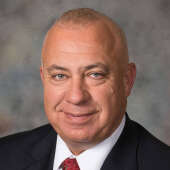- Bold solutions to reduce the tax burden (5/6/24)
- Brewer headed back to Ukraine (4/29/24)
- Committing to a reliable energy future (12/28/23)
- Enforcing preemption for constitutional carry (9/11/23)
- Brewer: Don't sign petition (8/8/23)
- School choice should remain in Nebraska (7/25/23)
- Preparing for next-generation nuclear power plants (7/18/23)
Opinion
George Mason's epiphany
Tuesday, September 5, 2023
I was recently contacted by a Nebraska resident who complained about my support for the Convention of States (COS) initiative. They argued the process was illegitimate and dangerous and could lead to a run-away convention wiping out our beloved constitution, etc. Over the years I have devoted a number of these weeklies to this topic, so here goes.
This citizen’s argument has been debunked a number of times over the years. It is a tediously common tactic by a number of different political organizations to gaslight people into believing the convention of states is a dangerous idea.
I urge people to read the plain language of Article V. It allows for 2/3 (34) of the states to “propose” amendments. Nothing more. The amendment still must be ratified by ¾ of the states (38).
As has been demonstrated by two mock conventions, the far greater likelihood is you cannot get at least 26 states to agree on anything, let alone wiping out the existing constitution. Congress has proposed 33 amendments since the birth of our nation. The states have ratified 27. The process clearly works. Just because the “second way” to propose amendments has never been done before, doesn’t mean it won’t work. The states have a sovereign right to do so, and several of them are urgently needed.
History records that on the second to the last day of the constitutional convention, the delegates were reviewing the final draft of the constitution. Not much was on the agenda.
It was going to be a light day before the big finish the following day when George Washington would adjourn the convention Sini Die.
George Mason realized the article V in the Virginia plan that had earlier been adopted by the committee, had been modified. During Hamilton’s brief time at the constitutional convention, he argued against giving the states the ability to amend the constitution, so a pen-and-ink change to the draft constitution was made to placate him.
He really didn’t want congress to have much power either. Hamilton wanted Washington to be anointed an imperial president with the divine right of a sovereign king.
Instead of argue with him, because everyone knew he was Washington’s favorite son, the other delegates let him depart for New York, which he did soon enough, but the draft never did change back.
Mason pointed out this error, and he also made the obvious point that the several states are sovereign in their own right, and are the creator of the federal government.
Not giving them the ability to propose amendments to the constitution they wrote had utterly zero support among the delegates.
Of the hundreds of motions and amendments heard and debated during the constitutional convention, Mason’s amendment restoring the article V language to what we have today was passed unanimously without debate.
Anyone who has been a member of an elected body knows what “passed unanimously without debate” means. In this case it meant every single state at the convention in Philadelphia declared that they are sovereign in their own right, and they will reserve the right to call a convention and propose amendments to the federal constitution if 2/3 of them so choose.
The convention of states method of proposing amendments to the federal constitution was deliberately put in Article V because all of the framers feared the day when the federal creature they had just created grew corrupt and tyrannical and began ignoring the constitution and trampling the rights of citizens.
I think that day has arrived. I’m glad nineteen states have passed and sent resolutions to Congress. We need fifteen more to save the country.

